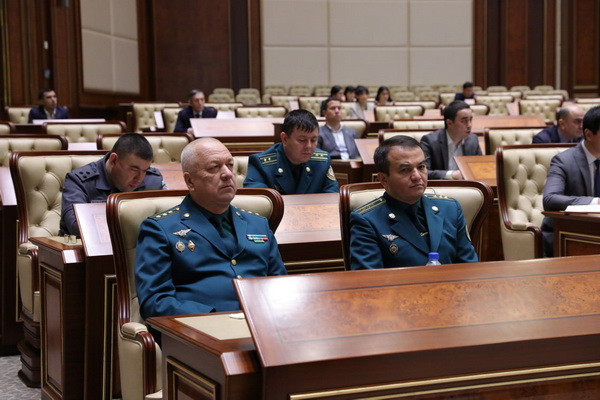
Sentence enforcement is being improved
Tashkent, Uzbekistan (UzDaily.com) -- The senators ] discussed the law "On introducing amendments and additions to the Criminal and Penal Execution Codes of Uzbekistan".
During the discussion, it was noted that today there are cases of involuntary escape from places of serving punishment by convicts serving their sentences in open prisons, but no strict punishment is established for such prisoners. There have been cases of recidivism of a number of grave and especially grave crimes by convicts who committed grave and especially grave crimes while serving their sentences and who were transferred to a settlement colony. Whereas in 2021 alone, 15 inmates in open prisons had committed grave and especially grave crimes, in 2022, 77 inmates committed such crimes.
It was also pointed out that the consequences of malicious violation of the prison regime and the absence of clear criteria for conviction for labour evasion have an impact on the effectiveness of educational work with prisoners.
The discussed law is intended not only to eliminate the above-mentioned problems, but is also relevant in that it is aimed at ensuring full compliance of the internal regulations established in penitentiary institutions.
In particular, in accordance with the amendments introduced by the Law, the 24-hour period which constitutes the ground for recognizing the convicts who have left the territory of the penal institution without permission as malicious violators of the prison regime is reduced to 12 hours, the punishment in the form of deprivation of a regular visit for violation of the order of serving the sentence is established.
A new article 1121 is added to the Penal Enforcement Code, under which a request may be submitted to a court for a transfer from an open prison to a general-regime colony, from a general-regime, strict-regime or special-regime colony to a prison, for a return from an open prison to a general- or strict-regime colony, from a strict-regime colony to a special-regime colony or from a colony to a prison.
In addition, it has been established that convicts who have been transferred from an open-type penal colony to a general-regime colony while serving their sentence, as well as those returned to a general- or strict-regime colony, are not transferred to an open-type penal colony for at least two years from the date of the court order to do so, nor are convicts who committed a crime while serving their sentence in an open-type penal colony and are sentenced to a custodial sentence by a court.
The time limits for transferring convicts to open prisons are now extended, i.e. it is stipulated that convicts may be transferred to an open prison after serving at least one third of their sentence for a serious offence and at least half of the sentence for a particularly serious offence. It also stipulates that conditional release from punishment may be applied after the convicted person has served not less than two thirds of the sentence for a serious offence and not less than three quarters of the sentence for a particularly serious offence.
The senators noted that the introduction of this Law in practice will contribute to the full compliance of convicts with the rules established in penitentiary institutions, improve the effectiveness of educational measures and the prevention of reoffending, a positive change of attitude to work, the strengthening of internal regulations in penitentiary institutions.
After discussion, the Act was approved by the senators.